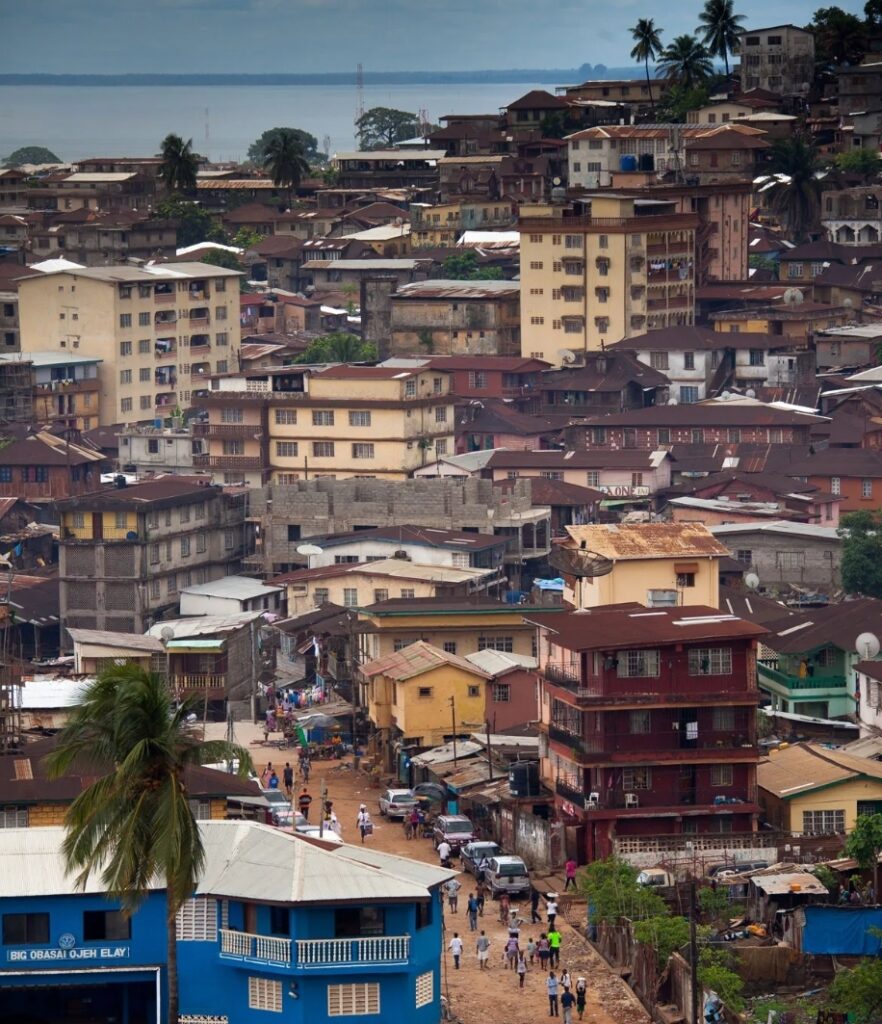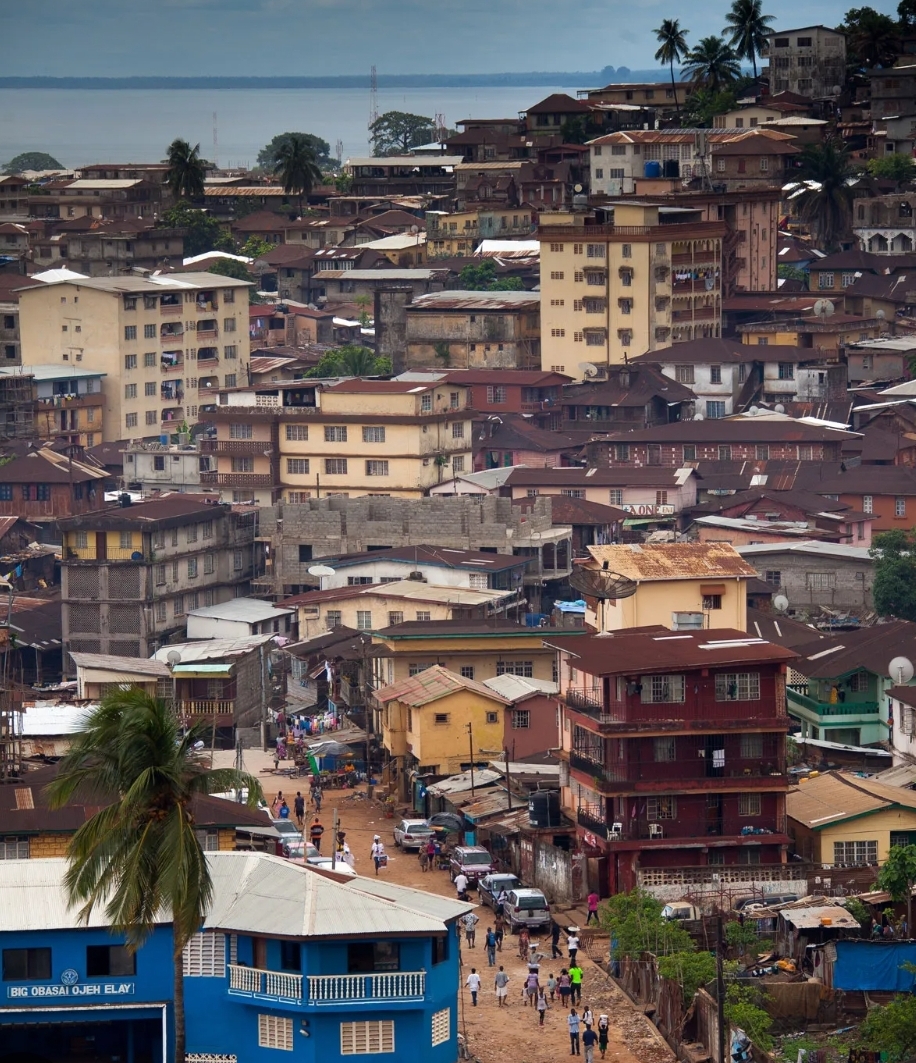
’HANDS OFF FREETOWN’’
…Citizens Reject City’s Division
By Ibrahim Alusine Kamara (Kamalo)
The proposal by the Julius Maada Bio government to divide Freetown, the capital city of Sierra Leone, into three municipalities is receiving backlashes from all segments of the society. The farmer in the remotest area of Sierra Leone—the petty trader, fisherman and grassroots —special groups and unions of elites, including legal minds—and all in every nook and cranny of the country are in low spirit and criticizing the proposal.
A letter dated 21 September, 2025, coming from the Krio Descendants Yunion (KDY) to the Minister of Local Government and Community Affairs on the “proposal to form local councils in the municipality of Freetown” vehemently opposes to the move.
The KDY letter comes following the consultative meeting held on Thursday, 18 September 2025 at the Freetown City Council Auditorium, on the proposed division of the Municipality of Freetown into three Local Councils.
“We as Krios in the homestead of Freetown and in the diaspora feel obligated to express our serious concern and objection to the said plan,” the letter states.
For the KDY, such a town hall meeting would have been held to discuss on the way forward, where suggestions would have been solicited towards “better service delivery in the entire Western Area, considering the constant increase of its population and the knock-on effects of unplanned settlements springing up in undesignated areas over the years.”
KDY says while it appreciates that summoning the citizens to a meeting to listen and deliberate on issues that concern their welfare is akin to the spirit of democracy— President Lincoln’s ever holding description being of the people, for the people and by the people— reactions at the meeting by Freetownians as reviewed all over the world via social media smack rejection of the proposed segmentation of Freetown into three cities with a mayor at the helm.
According to KDY, Freetown municipality is only 87 square kilometers, being one of the smallest capital cities in Africa, but its population of more than 1.3 million people makes it one of the densest capitals. The Yunion is conscious of the difficulties that currently exist in providing sustainable services to the city, and a significant improvement in delivery of services is needed. Therefore, dividing the city into three Local Councils will create Councils that are more or less smaller than 30 square kilometers each. Also, the division will make each of these Councils unsustainable and difficult to provide equitable services. Besides, a worrying thought abound that this fragmentation may in no time provide bastions for political party struggles leading to intimidation and victimization in situations where voting patterns portray perceptions of a particular Council leaning to one political party or the other.
With the numerical growth and the increase of slum settlements as a result of rural to urban migration, urban expansion for rural development to ensure an even spread of amenities into rural expanses for the realization of a gradual but steady symmetric national infrastructural development must now be at the apex of any potential plans towards having a Freetown that could be comparable to the archetypal of what constitutes a modern municipality.
In the view of KDY, expansion of the city due to population size, and devolving powers to the existing Local Councils with functional effectiveness at Ward level “will go a long way in easing the development gaps” that be, rather than isolating the underdeveloped peripheral eastern flank and western rural villages from their present central structure, “because such will only accentuate low revenue collection and difficulty in undertaking any meaningful local development projects in any of the envisioned municipalities at any given time.”
KDY reiterates that as things stand, the eastern part of Freetown accounts for only twenty percent of the revenue generated by the Freetown City Council whilst the rest is mainly from the Central Business District and the Western part of Freetown, meaning that any potential division will not only make paltry of revenues generated from any of the ensuing councils, but compound rather than solve the problems.
“Based on the foregoing, we reverently implore you to give our concerns serious attention and to reconsider your proposed municipality segmentation which we believe will be detrimental not only to the local administration of Freetown but Sierra Leone as a country,” the letter states, adding: “… We share the view that it is incumbent on all of us to make our Freetown a model municipality in Africa and the world, and such an undertaking yearns for much more than a declaration.
The KDY letter is signed by the President, Emeritus, Krio Descendants Yunion, Canon Cassandra Garber, JP, and the Krio Community President, SR Valcarcel Esq. The Mayor of Freetown, Yvonne Aki-Sawyer, and the Krio Descendants Union Global Executive Board are copied.
For the Lawyers’ Society Sierra Leone, the government’s argument that forming new municipalities from Freetown and the Western Rural District will improve service delivery could not be relied on, and warns in an open letter to the Minister of Local Government and Community Affairs against dividing the Freetown Municipality, noting that doing so will just worsen the financial and administrative challenges the government is already facing.
The Society also raises concerns over the unavailability of data to support the government’s division plan of Freetown into three municipalities.
“No financial analysis has been presented to justify this plan, particularly at a time when delays in government subventions are already straining local administrations,” the letter states.
According to the Local Government Act 2022, any creation of new localities should come on the advise of the Minister of Finance and the Electoral Commission based on the population density and fiscal sustainability. The Lawyers’ Society, therefore, takes exception to any division of Freetown, calling it premature, since the National Household and Demographic Survey scheduled for 2026 is yet to come and be done. In other words, without an up-to-date census data, there is no necessary reason for the Electoral Commission to segment the new municipalities.
The Society says there are existing political Wards that are directly represented in the Freetown City Council, and flags down the notion by government that the proposed division is to realise effective delivery of services as nothing reasonable to go by. For the Society, the establishment of any new administrative units would cause duplicated and or redundant governance functions.
Meanwhile, the common suggestions to the government is for it to fully devolve powers to Councils and doling out timely funding for their administrations instead of taking the unpopular decision to fragment Freetown.
“The root of inefficiencies in Freetown’s governance lies in incomplete devolution and delayed financial support, not the structure of the councils themselves,” the letter states, warning that adding administrative units could strain Sierra Leone’s limited governance capacity amid global trade uncertainties and disruptions in the domestic mining sector.
The Lawyer Society calls for “evidence-based policymaking,” and urges the authorities to prioritize fiscal responsibility and stability over costly reforms that lack proper justification.
